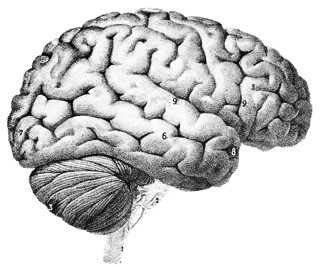
Parkinson’s and parkinsonism — symptoms that mimic Parkinson’s — stem from the same areas of the brain. These disorders both cause tremors, stiffness, slowness of movement, however they have different causes and may be helped with different nutritional therapies.
Parkinson’s versus parkinsonism
It’s helpful to know the difference between the two. Parkinson’s is a disease that slowly destroys brain cells (for some people it happens quickly) in an area of the brain that produces the brain chemical dopamine. Symptoms worsen over the years and include resting tremors, stiffness, slowness, not blinking enough, loss of smell, digestive problems, depression, and dementia.
Parkinsonism belongs to a class of disorders called “hypokinetic disorders,” which means diminished muscle function. Symptoms are slow or stiff movements.
Parkinson’s is due to degeneration of the brain’s dopamine area; parkinsonism is caused primarily by abnormal clumping of proteins called alpha-synuclein.
This clumping interferes with communication within the brain and also degenerates tissue.
Nutritional support for Parkinson’s
Because Parkinson’s disease degenerates the area of the brain that produces dopamine, nutritionally (and pharmaceutically) supporting dopamine can significantly help people Parkinson’s patients.
Dopamine is an important brain chemical that helps regulate not only feelings of reward and pleasure, but also mood, movements, learning, and motivation.
Nutritional compounds that support dopamine include L-dopa, pyridoxal-5-phoshate, DL-phenylalanine, beta-phenylalanine, and acetyl-tyrosine.
Nutritional support for parkinsonism
Parkinsonism also involves dopamine, but nutritional support should focus more on preventing or slowing the clumping of alpha-synuclein. In fact, research shows dopamine medications may worsen parkinsonism.
The key is to support the energy factories inside each brain cell, called mitochondria, and to support cell function.
Nutritional support for Parkinson’s and parkinsonism
These strategies have been shown in studies to help nutritionally support both Parkinson’s and parkinsonism:
Support healthy gut bacteria and function. Research shows an unhealthy balance of gut bacteria and gut inflammation can cause aggregation of alpha-synuclein, thus increasing the risk of Parkinson’s and parkinsonism.
Consider a ketogenic diet or intermittent fasting. Both these diets have been shown to slow down protein aggregation and promote healthy function of brain cells.
Take flavonoids to protect brain cell mitochondria. Flavonoids are anti-inflammatory plant compounds that have been shown to protect the brain. Turmeric and resveratrol are examples of powerful flavonoids.
Take nutrients to protect mitochondria. Nutritional compounds that have been shown to protect the mitochrondria include CoQ10, carnitine, riboflavin, niacin, alpha-lipoic acid, and magnesium.
Make sure you consume enough essential fatty acids. Essential fatty acids are anti-inflammatory and protective of brain health. Consume enough in the right ratio.
Support methylation. Methylation is a molecular process necessary for healthy brain function and helping prevent brain inflammation and degeneration. Nutritional compounds that support methylation include methyl B12, L-methylfolate (5-MTHF), trimethylgycine, choline, riboflavin, and pyridoxine.
Exercise! Increasing your heart rate through regular aerobic activity has been shown to help manage the progression and symptoms of Parkinson’s and parkinsonism. It’s best to get your heart rate up to higher levels for at least a few minutes every time you exercise.
What not to take. Acetycholine is a brain chemical and a supplement that can be great for the brain but it opposes dopamine. Therefore, in many cases it is recommended not to take acetylcholine supplements or precursors when you have parkinsonism or Parkinson’s disease.
This is a broad and simple overview of some nutritional strategies that can help you manage Parkinson’s or parkinsonism in addition to medical and functional neurological care. Ask my office for more advice.



Latest from the Blog
The Death of Red Dye #3
January 15, 2025What Is Red Dye No. 3? Red Dye No. 3, or Erythrosine, is a synthetic food color derived from coal tar. It was first approved by the FDA in the 1950s and quickly became one of the most popular artificial colors in food and cosmetics. Red Dye No. 3 was used in everything from candies, […] Read more
Latest from the Blog
Do You Know What Is In Your Protein Powder?
What’s Really in Your Protein Powder? Understanding the Risks Protein powders are a staple in many health-conscious diets, from athletes seeking muscle recovery to those simply aiming to boost their daily protein intake. With a wide variety of options available, choosing the right one can feel overwhelming. However, recent findings have raised concerns about what’s […] Read more